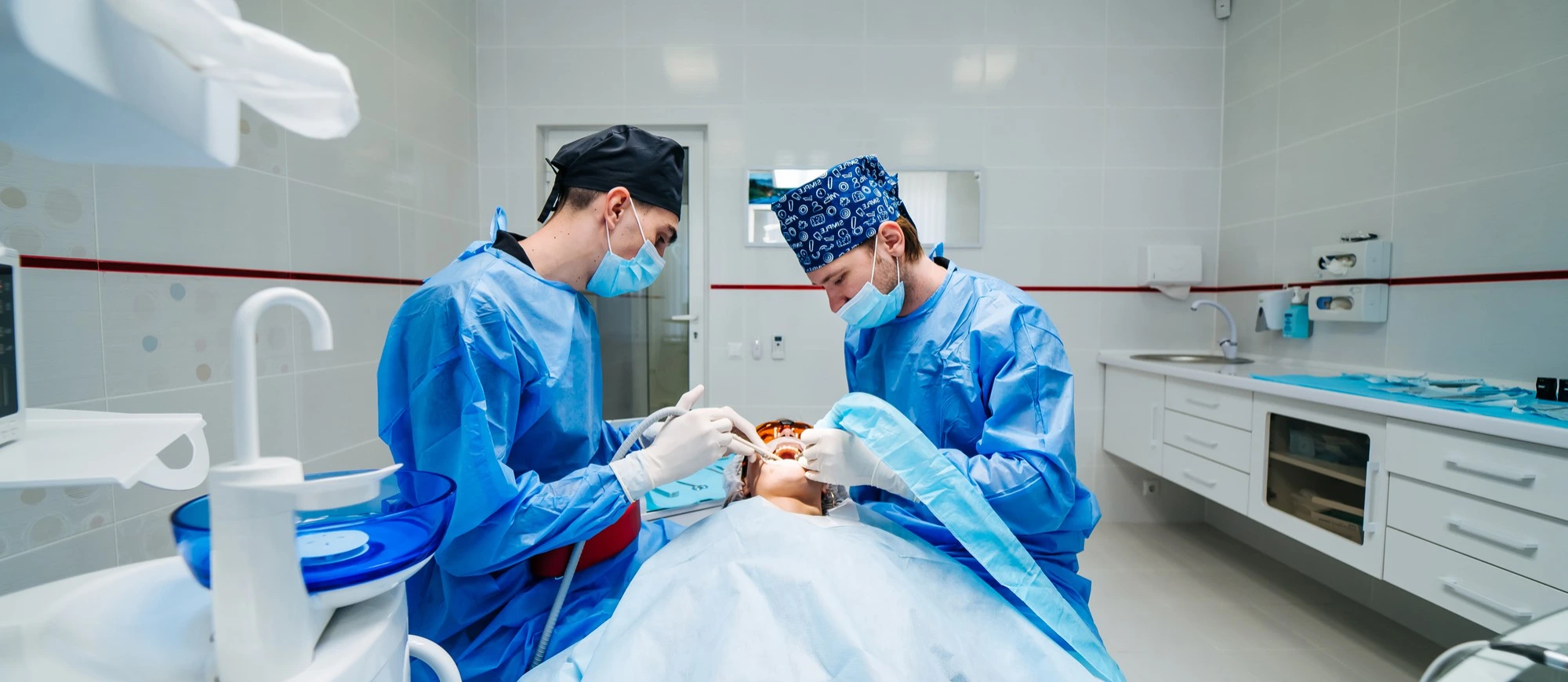What is Oral Surgery?
Oral surgery is a branch of dentistry that involves surgical procedures aimed at treating diseases of the mouth, teeth, jaws, and soft tissues of the mouth. Oral surgeons are specialized dentists who have experience performing surgical procedures to address a wide range of issues related to the mouth and jaw.

When is Oral Surgery Necessary?
- Broken or damaged teeth that cannot be repaired with fillings or crowns.
- Deep cavities and infections that require tooth extraction.
- Severe issues with the gums and surrounding bones, such as periodontal diseases.
- Jaw fractures or facial bone damage following accidents.
- Oral diseases that require the removal of tumors or cysts.
- Severe orthodontic issues that require surgery to correct bite alignment or other jaw structures.
The most common procedures of Oral Surgery.
- Extraction of milk and permanent teeth:Extraction of teeth that are damaged, decayed, infected, or causing pain or other dental problems.
- Wisdom tooth extraction: Wisdom teeth are known for often needing to be removed due to lack of space or because they can cause infections, pain, or orthodontic complications. This is a common surgical procedure in dentistry.
- Abscess Surgery: Oral abscesses are collections of pus caused by infections in the teeth, gums, or jawbones. Oral surgery is necessary to drain the pus and treat the infection with antibiotics or other treatments.
- Drainage of infections:When deep infections occur that cannot be treated with antibiotics, surgery may be necessary to drain or remove the infected tissues.
- Treatment of Tooth Fractures: Oral surgery may involve the repair of broken or severely damaged teeth, including the use of fillings or crowns.
- Jaw fractures: In the case of jaw fractures, surgery may be necessary to repair or reconstruct the broken bone.
- Soft tissue injuries of the mouth and cheeks:Surgical treatment may include addressing wounds in the mouth and cheeks caused by accidents or injuries.
- Removal of oral tumors: Oral surgery can be used to remove various tumors in the mouth, including benign and malignant (cancerous) tumors.
- Removal of oral cysts: Cysts are fluid-filled formations that can develop in the mouth or jawbones. Surgery is necessary to remove cysts and prevent infections or damage to teeth and bones.
Orthognathic Surgery: This includes procedures that help correct imbalances in the jaw and facial structure to improve the function and aesthetics of the mouth and jaw. Orthognathic surgery is often used to correct bite disorders and dental alignment issues.
Dental implant placement: Oral surgery is an important component in the placement of dental implants for patients who have lost teeth. Oral surgeons perform the procedure of placing a metallic fixture into the jawbone, which serves as support for new teeth.
Surgical treatment for periodontal diseases: When gum diseases (e.g., periodontitis) cause bone loss around the teeth, surgery may be required to recover and restore the damaged structures. This includes procedures like curettage, root planing, and sometimes, bone or tissue grafting.
Cysts are fluid-filled formations that can develop in the mouth and may cause pain and infections. Oral surgery can be used to remove these cysts and restore damaged teeth or jaws.
